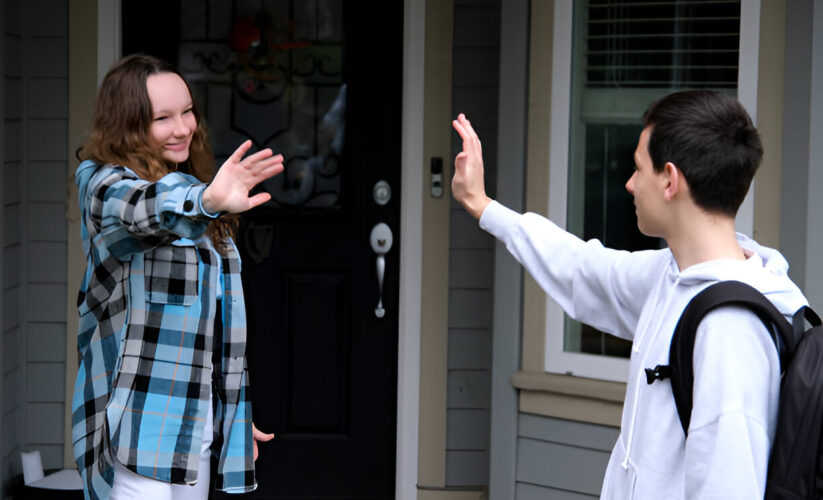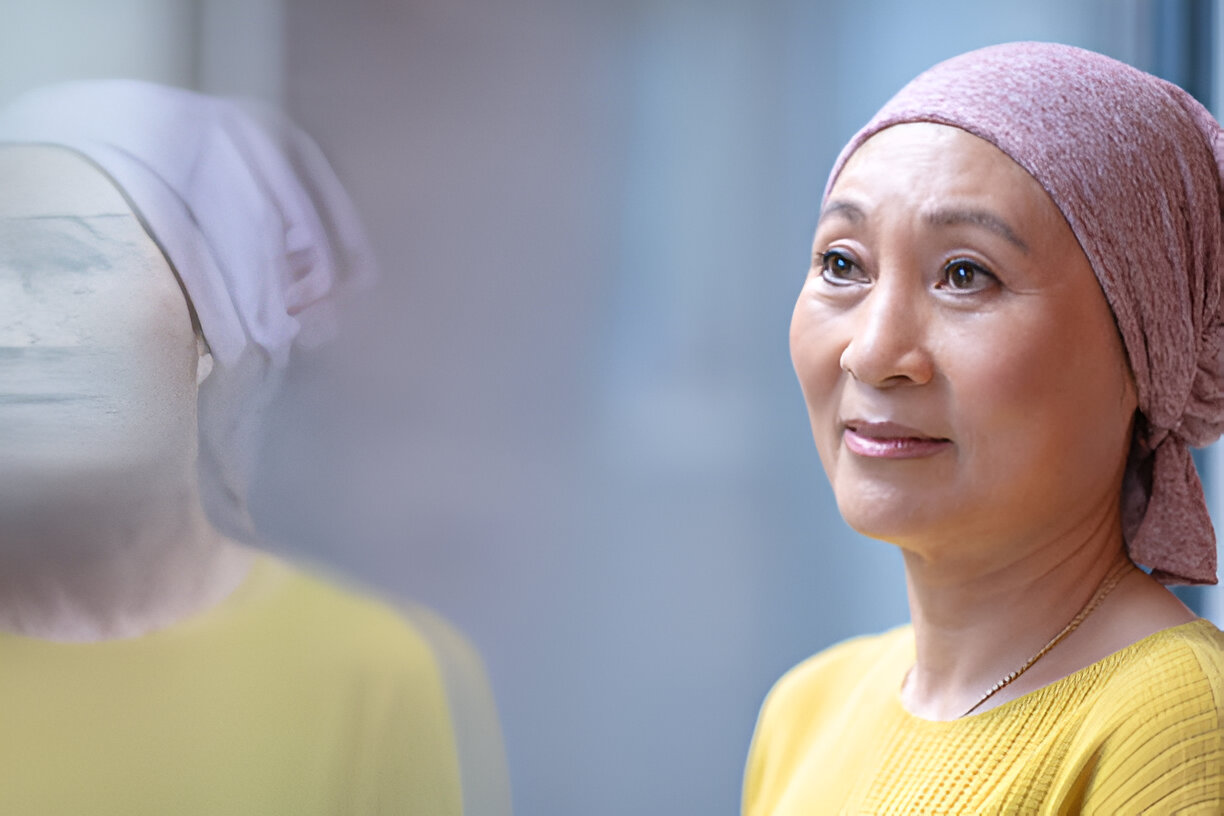
By Laura Fraser
Just before Thanksgiving last year, I got the call that everyone knows, but doesn’t quite believe, will come someday — the one that begins, “I have some bad news.” My father told me that my mother had just had a massive stroke and was still unconscious. He said things didn’t look good.
My mom, who just two weeks earlier had been laughing out loud watching “The Daily Show” with me, sharing opinions about novels she’d liked and what the Democrats ought to do next, who’d made plans for my return visit at Christmas, and who was as intellectually bright as she’d been the day I was born, was suddenly unconscious, lights out.
She never woke up. I flew to Colorado, where she was in the hospital. When my family gathered at her bedside, she was just a shell of herself, one that kept breathing for a couple of days before simply stopping. And just like that, she was gone. I was suddenly someone whose mother had died, a role I hadn’t prepared for, and one that my acquaintances didn’t seem to know how to deal with, either. I was struck by how awkwardly most people handle death — the way I’m sure I’ve responded to friends who’ve had losses in the past — and I’ve learned a great deal since about slowing down to make time and space for grief.
From the day after my mother’s death, it seemed there was a black hole that should have been filled with ritual. While my father and my three sisters and I carried out the usual tasks that follow a death, it occurred to us at a certain point that we hadn’t eaten all day. We split a frozen pizza five ways; it was no longer the custom, it seemed, for neighbors to drop off casseroles. While my parents’ friends were supportive in many ways, and helped plan a beautiful memorial service, there was never a time when our WASP family could simply sit and grieve, like sitting shivah in the Jewish faith, while others tended to our basic needs.
After an initial flurry of calls and condolences, and a moving memorial service, the period of mourning seemed to be over very fast. Just a week or two later, I felt like everyone treated me as if I’d had a bad case of the flu and should be on my feet and back to work already. But my internal clock conflicted with the fast-paced world around me, where there seemed to be no time for mourning. I was still in a dense, dark fog, through which I could barely move. I vaguely understood that it would take me a long time to feel even close to normal again. Months later, I’ve barely passed from the stages of disbelief and denial to feeling that things are surreal. I’m negotiating — I miss my mom, but it was a lot better for her to have died quickly than to have suffered the slow decline of a debilitating disease — yet I am nowhere near acceptance.
I realize I’m largely to blame for setting a quick pace to my grief. The morning after Mom died, I didn’t know what to do except post the news on Facebook, with a link to an essay I’d written a few years earlier about her adventures in the outdoors and accomplishments in various fields of human rights. I am proud of her, and wanted to share what an extraordinary person she was. I also wanted to talk about my mom without having to endure the pain of telling everyone individually — which, in retrospect, might have been better therapy for me.
Right away, I got scores of warm responses from friends who were sorry for my loss — the stock phrase everyone feels safe and polite saying to the bereaved. Many of those condolences were on Facebook, some were via email, and that first day, they were overwhelming. I scrolled through them all in a blur, and then they disappeared.
Much as I appreciated them, those quick one-liners via email had nowhere near the impact of the words of friends who took the time to find a card, sit down, and recollect my mother’s laugh, or how she never let us take ourselves too seriously as kids, or how much she loved to sit on a rock with a wide view of the mountains. Those cards, I’ve kept and will cherish. But of my many friends, only a handful wrote sympathy notes (almost all were from the East Coast, where perhaps traditions are stronger than here in California). My Italian and Mexican friends emailed, too, but their notes tended to be longer, more personal, and filled with more sorrow and affection than those from their American counterparts; people in Latin countries seem more comfortable with death, and have a larger vocabulary of condolence.
My father, meanwhile, received well over a hundred cards. My oldest sister, by seven years, got nearly as many, which somehow delineated the difference between my parents’ contemporaries, baby boomers, and my generation. I’m a bit of a throwback, because from the time I was old enough to scribble my name, my mom insisted I write cards to show my appreciation for presents and dinner parties and to acknowledge important passages in life. She would take time with her own notes; for a happy occasion, she’d write a limerick, and for a death, a specific memory. In most things, Mom was more a rebel than a traditionalist, but when it came to recognizing important moments in other people’s lives, she was a stickler for etiquette.
After she died, old-fashioned mourning customs began to make a lot of sense to me. I understood for the first time why Victorians used to have an entire year of mourning, during which no one expected them to do anything more strenuous than drink tea. All I wanted to do was dress in black so that everyone would know I was grieving, and just sit, staring into the distance, waiting for the next wave of grief to hit, and riding it out with salty tears.
Of course, my friends would never have noticed, since I wear black all the time anyway. But if I could have dressed for mourning, it would have signaled to the people I saw socially around the holidays not to ask, “How are you?” — an innocuous greeting that I’d nonetheless come to dread. I wasn’t fine, of course, but you can’t say, “My mother just died. Would you pass the eggnog?” Nor, if I’d had a black armband, would acquaintances inquire, “What are you working on?” which is evil enough to ask of a writer between books, but particularly bad when she is feeling anxious that all her creative spark has been snuffed out for the foreseeable future by her wet cloud of grief.
When I did share that my mother had died, I saw how many people’s discomfort with death made them want to skip over sorrow and simply console me by saying that things were all right. Things were not all right. Often, people’s reassurances made me uncomfortable, and even a little angry. They would ask how old my mother was — 83 — and say, “Well, she lived a good long life,” which, while certainly true, felt like dismissing my pain. Or they’d say, “It must be hard, around the holidays,” which was also true, but seemed ridiculous, since my mother had just died during the holidays, and the grief wasn’t going to go away when New Year’s rolled around.
It was also difficult when, after hearing the news, people immediately asked how my mother had died. I didn’t want to dredge up those emotional, clinical details for just anyone. I would have felt much better if they’d asked about her life, not her death — “What kind of person was your mom? What type of work did she do? Are you like your mom? Did she have a sense of humor?” Nor was it helpful when well-meaning friends would tell me about illnesses or recent deaths in their own families; when you are grieving, you don’t have the bandwidth to offer sympathy to someone else. In this instance, it really does have to be all about you.
One dear friend, who’d also been close to her mother, told me that there are two types of people in the world — those who have lost their mom, and those who haven’t — and that only those with experience can say things that are meaningful and comforting. For others, the thought is just too difficult to contemplate, which is one reason they try to cheer it away.
I’ve learned, now, how to talk to someone who is grieving. My first lesson came in the hospital, when the nurses, who were aware my mother was slipping away, asked my father, “How did you meet?” which gave him the pleasure of recollecting and sharing that moment when their eyes locked over a campfire in college. When someone is gone, we are hungry to talk about them, to conjure them from memories, to linger long enough to recall vivid moments.
My boyfriend, too, had lost his mother, several years earlier. That’s why, after I’d flown home to San Francisco in the wake of Mom’s death but needed to return to Colorado for the service, he made the odd and wonderful suggestion that we drive the 1,200 miles back to Denver. We took our time, spending the night with friends in Nevada, passing through wide-open miles of nothingness on U.S. Route 50, and then taking a day in Moab, Utah, to hike in Arches National Park, the red rock canyon country my mother so loved.
It was there, in the stillness of the sunset-colored rocks and vast landscape, that I was finally able to slow down and feel something big enough, and permanent enough, to contain my grief.






















